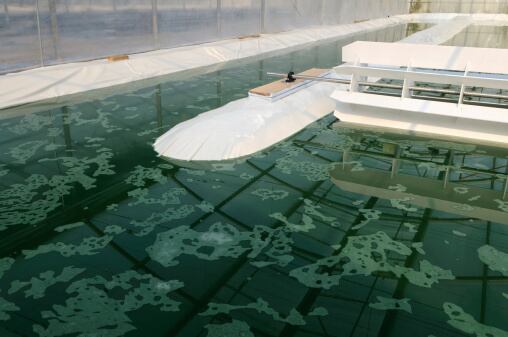The firms inked the deal earlier this month, bringing into effect a three-year joint development agreement (JDA) to develop natural food colourings from microalgae. This will include phycocyanin, the main bluish-green protein pigments found in the cyanobacteria of Spirulina and which forms the base of DIC’s trademarked Linablue colour.
In addition to the JDA – financial details of which were not disclosed – DIC has invested €5 million into Fermentalg in the form of bonds convertible at €5 per share.
DIC is a market leader in printing inks and organic pigments, reporting net sales of JPY820 billion (€6bn) for the 2015 fiscal year. Fermentalg, on the other hand, is a relatively new player established in 2009 in Libourne in the west of France, produces oils, pigments and proteins from microalgae primarily for food, feed and supplements.
DIC said the partnership would bring together Fermentalg’s unique microalgae strain bank and its integrated biotechnology platform along with its own significant applied

research, industrial and commercial resources.
“DIC is a pioneer of Spirulina cultivation by open-pond system, while Fermentalg is good at tank cultivation technologies,” director and manager of healthcare products at DIC Takaaki Oono told FoodNavigator.
“Japan shall be a good market where natural colourant have been widely used for longer years. [But] Europe and North America are our target markets where the demand for natural colours grows rapidly and steadily.”
Oono said they would be essentially focusing on phycocyanin it has experience working with but that all shades of natural colours that could be derived from microalgae would also be within the scope of the partnership.
DIC claims to have a 90% global market share in phycocyanin and predicts an annual growth in demand of 50% between 2016 and 2020.
In recent years, it has been increasing its production capacity for natural food colourings worldwide.
The investment into the French microalgae company comes one year after DIC injected $13 million (€10.8m) into expanding production capacity in the US for Linablue. The money followed an original 2013 investment of $10m at the California site operated by its US subsidiary Earthrise Nutritionals.
DIC also grows Linablue in Hainan Island in China.
Spirulina contains more than 50 vitamins and minerals, including calcium and iron, as well as protein, fibre and gamma-linolenic acid.
